TOP 10 WOODY ALLEN MOVIES
My Journey Through the Controversial Filmmaker's Very Best Efforts
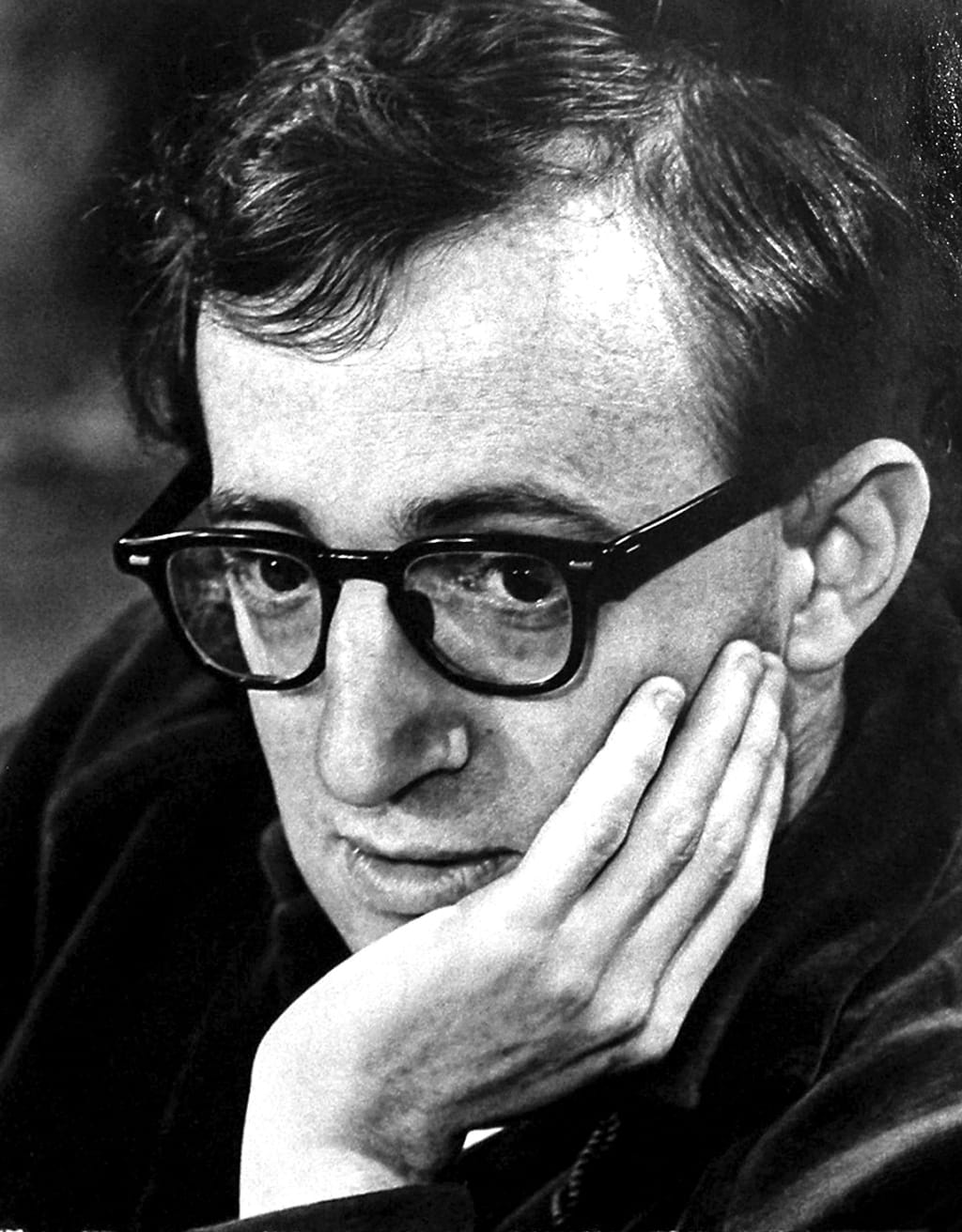
Last winter, I watched Annie Hall for the first time, and subsequently went down a Woody Allen rabbit hole where I watched approximately 25 of his films in the last eight months. Allen became my favorite filmmaker, and several of his films wormed their way into my favorites of all time.
I realize this isn't the most accepting time to get into Allen's filmography; public opinion of him has shifted drastically towards the negative due to renewed interest in his infamous child molestation case lobbied against him during the fallout of his marriage to Mia Farrow. While the jury is quite literally still out on whether Allen is guilty, there is no doubt his personal transgressions have overshadowed his artistic contributions.
The purpose of this list is not to engage anyone in a debate on Allen's innocence or guilt, but simply to dissect some films that have had a profound impact on me and that brought me great joy in some dark times in my life. I hope those that read can separate the art from the artist and enjoy learning about some endearing American classics and perhaps find new favorites.
10. Love & Death (1975)
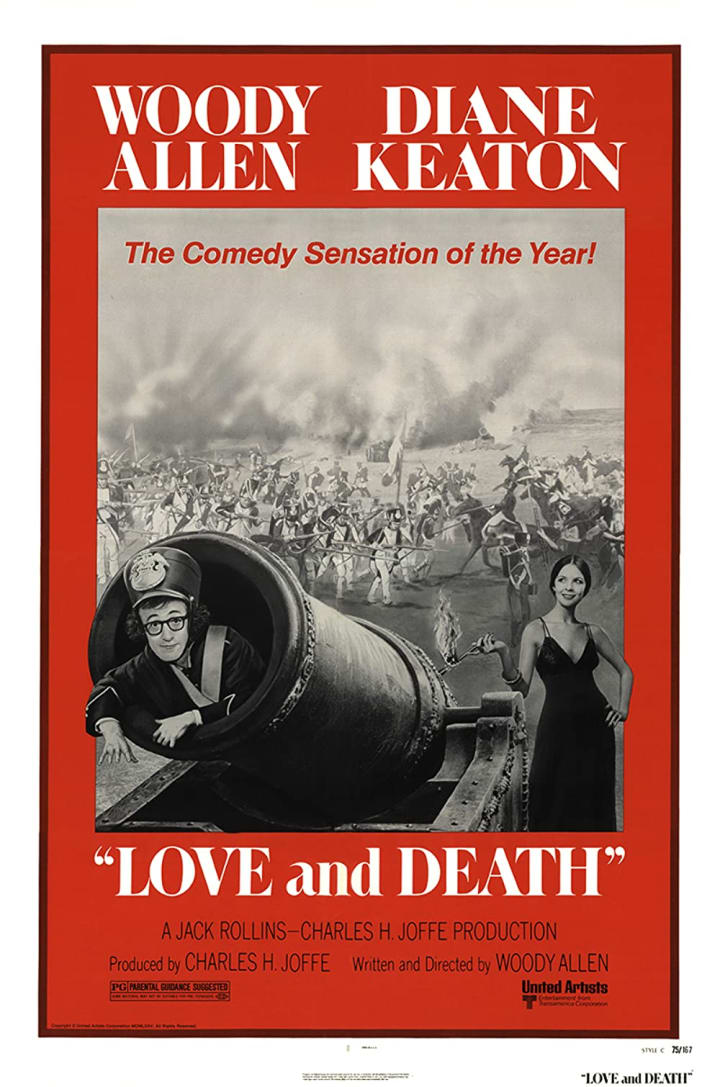
1975's Love & Death is in some ways a spiritual sequel to its predecessor, Sleeper; both films pay tribute to the silent film era 'slapstick' style of physical comedy a la Buster Keaton, both are early vehicles for Allen and Diane Keaton's endearing chemistry, and both feature similar plots involving the takedown of vicious dictators whilst satirizing both the oppressor and the oppressed. More importantly, it marks a shift in Allen's writing, as it is the film where his signature views on existentialism, religion and philosophy are first presented in biting and hilarious context; the scenes featuring Allen and Keaton's philosophical ramblings are some of his most brilliant, loaded with hilariously meaningless doublespeak about topics neither really comprehend. It's one of his most intelligent films, despite Allen's repeated insistences that he is not an intellectual.
9. Zelig (1983)

Zelig is one of Allen's most unique films:it's shot in a mockumentary style, consisting of interviews with parodies of scientists, scholars and other academic types as they dissect the life of Leonard Zelig. Zelig has a miraculous gift: he can shapeshift into anyone he wants and blend into any social situation. Does he want to be a Democrat or a Republican? A Muslim or a Jew? Wherever Zelig is, his adaptability knows no bounds. However, Zelig's gift eventually becomes a curse, one that Dr. Eudora Fletcher (Mia Farrow) hoped to break. In addition to being incredibly funny and unique among Allen's films, it's one of his most human: it speaks to the desire we have within all of us to fit in and be loved and accepted, as well as the lengths some of us go to achieve such means. Despite its absurdity, Zelig belies a warm spirit that is often not found in Allen's films.
8. Husbands & Wives (1992)
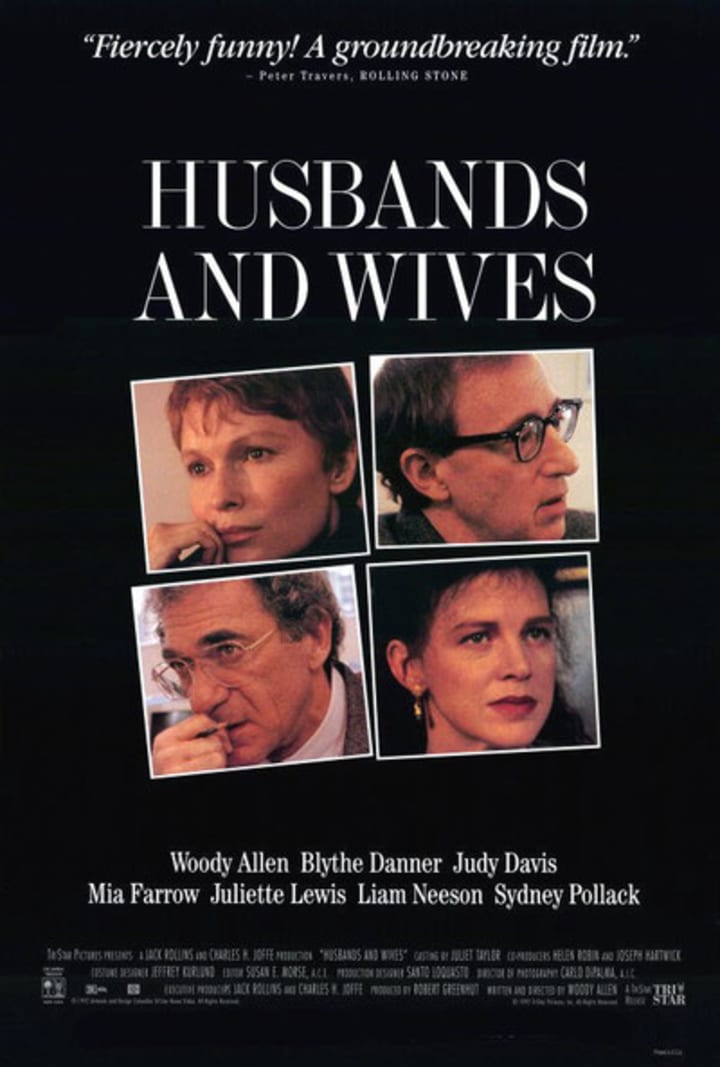
Barring his dramatic efforts, Husbands & Wives is Allen's angriest and darkest film; it was, perhaps appropriately, his last film with Mia Farrow. Husbands & Wives was filmed congruously with the disintegration of their personal real life romance, brought on by the discovery that Allen was having an affair with her stepdaughter from her first marriage, Soon-Yi Previn. The knowledge of the 'behind the scenes' turmoil adds an additional layer to a film that already feels all too raw, visceral, and real. It also was the breakthrough film for the great Judy Davis, one of Allen's most dynamic and exciting regular collaborators. Filmed in a documentary style about two couples navigating the decay of their respective marriages by juxtaposing the issues of each pair with the other's revelations, Husbands and Wives is all at once brutal, sad, and hilarious. It was also Allen's first great film of the 1990s', signaling that his third decade would be every bit as artistically fortuitous as his previous eras.
7. Manhattan (1979)

In retrospect, Manhattan has become perhaps most controversial, solely due to the key plot point of Allen's Isaac having an affair with high schooler Tracy (Mariel Hemingway); those who believe the allegations against Allen submit as air tight proof of his real life proclivities. While perhaps not as easy to swallow in today's climate, it's one of many richly developed and delicately handled sequences that make Manhattan one of Allen's all time greats. Diane Keaton once again shines as Mary, the woman Isaac thinks is perfect for him, an intelligent and eccentric writer. Meryl Streep makes her lone appearance in an Allen film as well, as his ex-wife who wants nothing to do him despite sharing a child together. Like the city it is named after, Manhattan is exciting, sprawling, discouraging, and ultimately hopeful and promising. Its ending is one of Allen's best, showcasing his ability to marry warmth and cynicism like few are able.
6. Hannah and Her Sisters (1986)

Allen's most life affirming film is one of his most multi-layered, handling deftly four different plot lines that coalesce beautifully. Hannah (Mia Farrow) is married to Elliot (Michael Caine in an Academy Award winning performance), but he feels disconnected and dissatisfied at this stage in their relationship. He strikes up an affair with Lee (Barbara Hershey), Hannah's sister who is at the breaking point of her relationship with Frederick (Max Von Sydow), an older professor who she struggles to find common ground with. Meanwhile, Holly (Dianne Weist, in her first of two Academy Award winning roles for an Allen film) is a recovering drug addict trying to make it as a restauranteur. Finally, Mickey (Allen) is Hannah's ex-husband and a hypochondriac struggling to find meaning in a world where he feels people are living only to die eventually. Existential dread and mid-life dissatisfaction are Allen's most common themes, and they coalesce beautifully through the intertwining stories in ways that are both dire and hilarious. Unlike many other Allen films, the film wraps up without compromise, resignation, or cynicism, a rarity for the notoriously dower Woody.
5. Broadway Danny Rose (1984)

The screwball caper "Broadway Danny Rose" has something of a cult following among Allen fans; Alec Baldwin and Chris Rock both rank it among their all time favorite movies, and others love it for its zany plot, bizarre characters and Allen's charismatic turn as hapless talent agent working with the bottom feeders of New York City performers. It also features Nick Apollo Forte as Lou Canova, one of the most hilarious and memorable supporting roles in any Allen film, whose songs such as "Agita" and "My Bambina" give the film much of its charm and quirkiness. Of further note is perhaps the best Mia Farrow performance in any of her 12 films with him, as tough talking mob darling Tina Vitale. But what really makes "Broadway Danny Rose" sparkle is its crackling script full of terrific one-liners, snappy dialog and madcap situations that make it one of Allen's most entertaining efforts.
4. Sleeper (1973)
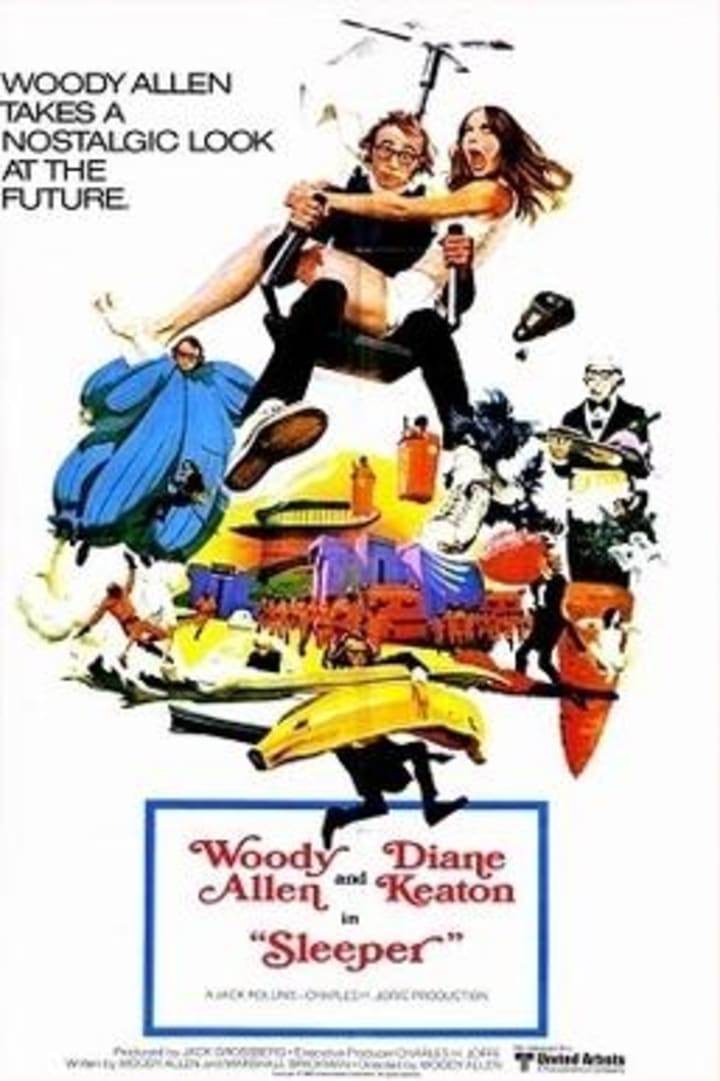
The first true classic of Allen's, "Sleeper" is glorious hybrid of sci-fi, slapstick comedy, and political commentary. Allen plays Miles Monroe, a health food store owner who dies during a routine ulcer operation. He wakes up 200 years in the future, where he is informed the world is now under totalitarian rule after a nuclear incident. Initially reluctant, Miles becomes part of the resistance when he falls for Luna Schlosser (Diane Keaton, in the first great pairing), a wealthy wannabe poet who he inadvertently kidnaps while escaping from military police. The film features some of the funniest scenes in any Allen movie, including a daring madcap chase scene as Miles escapes from custody and Allen and Keaton's uproarious sendup of A Streetcar Named Desire in order to cure the former of their brainwashing. Equal parts parody and tribute to a variety of genres and stories (HG Wells' The Sleeper Awakes was the main inspiration, along with 2001: A Space Odyssey), Sleeper is the first truly great Allen film and remains one of his very best films.
3. Annie Hall (1977)

It is here to that I am going to make the distinction between best and greatest: I do not think Annie Hall, for all its acclaim and enduring legacy, is Woody Allen's 'best' film. It's a masterpiece, without question, but I feel the two films ahead of it affected me more and went in deeper with their themes and overall presentation.
However, there is no debating Annie Hall's 'greatest' film; it's the film that has defined Woody to the general public, the one people point to instinctively when asked to describe what a Woody Allen film has to offer.
Few films have redefined an entire genre like Annie Hall did with the romantic comedy; Woody took the 'boy meets girls, loses girls, gets girl back' structure, threw in acerbic philosophical commentaries and pointed satire, and completely subverted expectations with its bittersweet ending.
And you simply can't talk about Annie Hall without talking about Diane Keaton as Annie, the film's flighty, wistful heart. She has never shined brighter, and her charm is so infectious that she drew out of Woody the most affecting performance of his acting career. They are a match made in Heaven, brought together by one of the finest scripts ever written.
Maybe Annie Hall really is his best, maybe it isn't. Maybe Woody really is so good that he doesn't have a 'best' film. Whatever the case may be, Annie Hall has stood the test of time, and I won't argue with anyone who has a problem with me ranking it where I do.
2. Deconstructing Harry (1997)

The most caustic of Allen's comedies, Deconstructing Harry is in many ways his last classic. Allen plays Harry Block, the most misanthropic, irresponsible, and insufferable of all his protagonists, so much so that deeming him one is a bit of a stretch. Still, the story is centered around the ongoing and often hollow struggle for satisfaction within the creative process, complete with meditations on Judaism, relationships, and other bracing existential themes presented in several unbelievably hilarious scenarios.
The supporting cast is one of Allen's best: Kirstie Alley, Billy Crystal, Judy Davis, Demi Moore, Elisabeth Shue, Julia Louis-Dreyfuss, Stanley Tucci, a debuting Jennifer Garner, Tobey Maguire, and Robin Williams add serious star power and give some of the most original and dynamic performances of their careers. As his ex-wife and sister-in-law / mistress, Alley and Davis particularly shine when confronting Block about his extramarital transgressions and general disregard for the feelings of others. It's a deeply layered film, often blurring the lines of fantasy and reality when Block's fictional creations step into the real world to dish him some harsh realities on the consequences of his actions.
While Allen has made several strong films in the twilight era of his career (Midnight in Paris, Match Point, Vicky Christina Barcelona, Blue Jasmine), Deconstructing Harry is the last full-on masterpiece of his career to date, and it's criminal that it is so damn hard to find.
1. Crimes and Misdemeanors (1989)
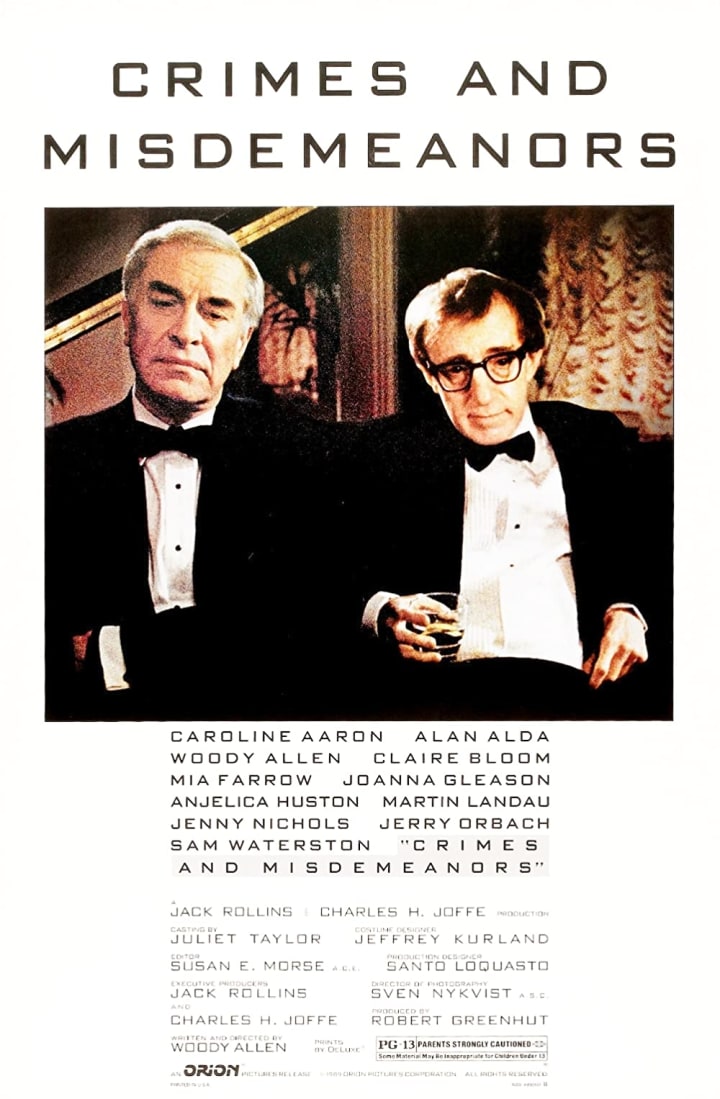
Allen's best film is this darkly grossing morality tale; themes of existential angst, moral ambiguity, and spirituality loom large throughout his entire ouvre, but their shadow has never been more enveloping. than in 1989's Crimes and Misdemeanors.
Martin Landau stars as Judah Rosenthal, an optometrist highly respected for his philanthropic work. His seemingly stable personal life is threatened by his mistress Dolores (Anjelica Houston), who is growing tired with his indecision on leaving his wife for her. Threatening to go to his wife with the affair, Judah consults with his shady brother (Jerry Orbach), who suggests having her killed. Horrified at having his personal life and reputation tarnished, Judah does the unthinkable and goes through with the suggestion. Never a spiritual man, Judah suddenly has to wrestle with the possibility of God's judgement as the consequences of his decision weigh heavily on him.
In contrast, the innocuous marital strife of idealistic documentarian Cliff Stern (Allen) is juxtaposed with the darkness of Judah's storyline; Cliff is trapped in a wholly loveless marriage. While following his pedantic brother-in-law Lester (Alan Alda) around for a project, he falls in love with Halley (Mia Farrow), a producer on the film. Cliff constantly tries to woo Halley with jokes about his brother-in-law's smugness and reminders of how unhappy his marriage is, ultimately to no avail.
Allen's married comedy and drama numerous times throughout his career, but never as seamlessly as with Crimes and Misdemeanors. It is the definitive testament to his ability to take seemingly incongruous ideas and styles regarding philosophy, morality, and storytelling and make them work together in a cohesive fashion. It is Allen's best film, which given the quality of his work over the years, is nothing short of a triumphant title.
About the Creator
Anthony Nasti
Aspiring music journalist, occasional dreamer. Searching for the secret looking for the sound.
Enjoyed the story? Support the Creator.
Subscribe for free to receive all their stories in your feed. You could also pledge your support or give them a one-off tip, letting them know you appreciate their work.


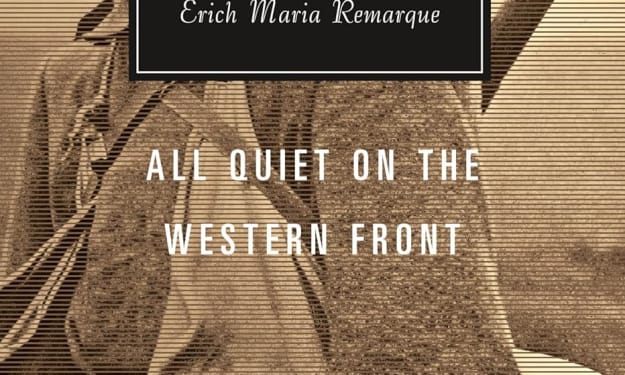


Comments
There are no comments for this story
Be the first to respond and start the conversation.